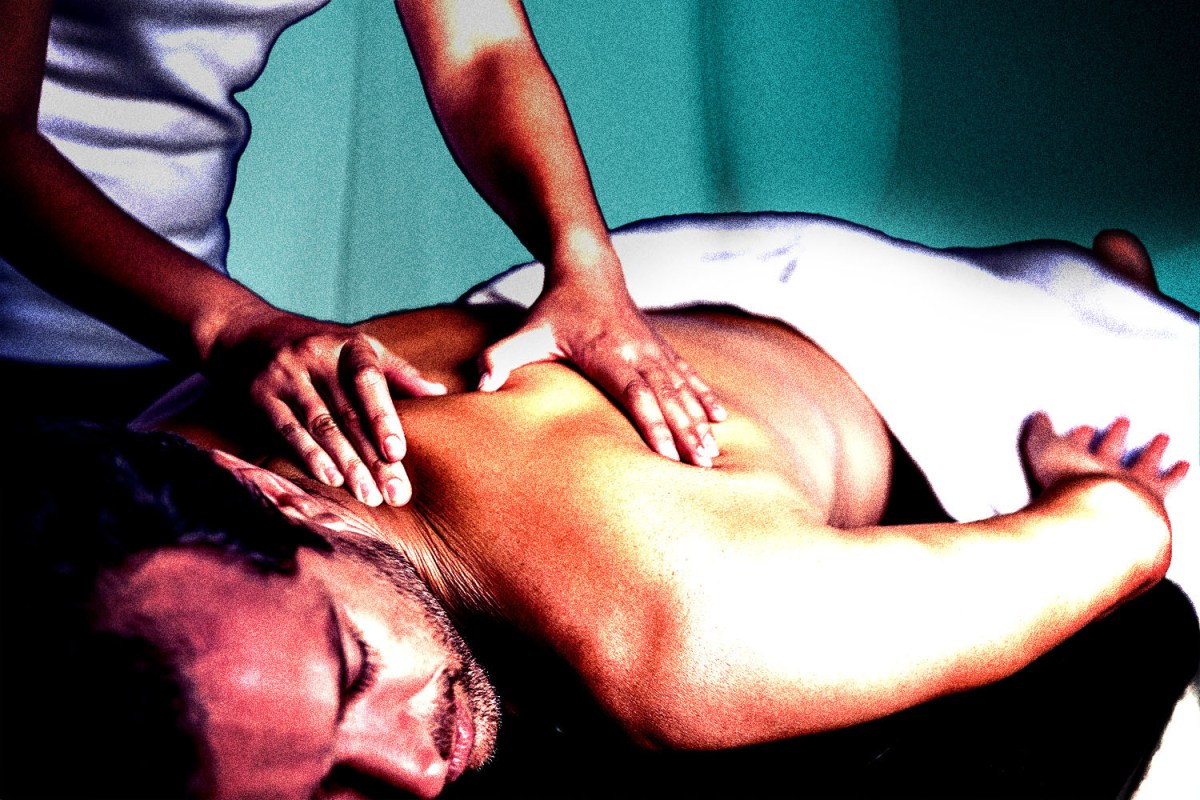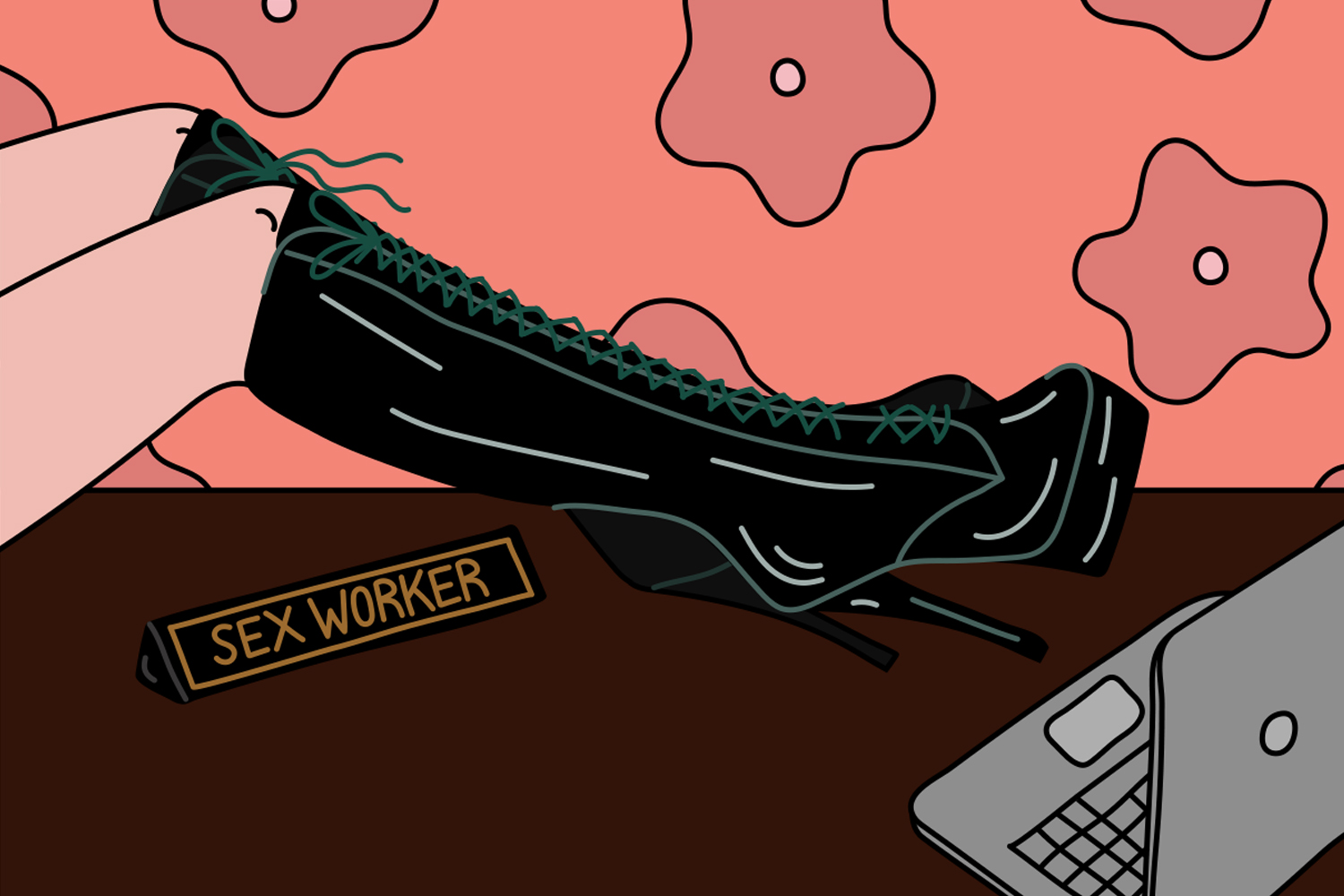Amid the discourse surrounding the 22 separate allegations of sexual assault against Houston Texan quarterback Deshaun Watson lies a secondary dilemma involving both linguistic ambiguity and the politics of sex work: the difference between a “massage therapist” and a “masseuse.”
Though Watson’s fate is a matter for the courts to decide, the language describing his case renewed a discussion around the distinctions between traditional massage therapy and that which broadly falls under the label of sex work. Despite outlets like TMZ Sports utilizing the word in their coverage of Watson, many massage therapists have come to avoid the term “masseuse” entirely for fear that it labels them as someone who might engage in sexual practices.
But how did we arrive at this discrepancy in the first place?
The answer, of course, is complicated — and not entirely universal, either. From a language standpoint, masseuse is simply a French feminine noun for a woman who performs massage, with the Oxford English Dictionary first citing it in 1876. It wasn’t until nearly 100 years later that the first written use of the word was associated with sex work, in Owen Sela’s 1975 novel The Bengali Inheritance. Exactly how this transition occurred is explained in part by the multitude of meanings for related terms, particularly “massage parlor,” “massage house” and “massage establishment.” Today’s OED definition of “massage parlor,” for example, is both “a brothel operating under the guise of providing massage” and “an establishment offering therapeutic massage.” The first written instance of massage parlors being associated with illegal activity occurred in 1906.
All this is to say that the word “massage” itself has long had a complex relationship with sex work while simultaneously describing non-sexual activity.
“While the OED gives an early mention of massage parlors operating as brothels in 1906, we can find slightly earlier examples in British newspapers of the 1890s, appearing in general-interest stories and reporting on prosecutions of prostitutes and pimps,” explains Dr. Helen Baker, a senior research associate in history, linguistics and the English language at Lancaser University who co-authored a study of the linguistics surrounding 17th-century prostitution in England.
“I can only guess why this association between commercial sex and massage houses started to appear in the 1890s. I haven’t done any research into Victorian prostitution but am aware of a moral reform movement of the 1880s which aimed, among other things, to curb prostitution. For instance, this decade saw the passing of the Criminal Law Amendment Bill, which raised the age of consent from 13 to 16 and made it easier to prosecute people involved in the sale of sex,” says Baker.
“My best guess is that the terms ‘masseuse,’ ‘massage parlor,’ ‘massage establishment’ and ‘massage house’ started to be written about in association with commercial sex in news stories towards the end of the nineteenth century because of the surge in popular condemnation against prostitution during this period,” she says. “Although most Victorians probably found the subject of prostitution to be distasteful, some may have enjoyed reading scandalous stories about sex for sale and information about the various places in which prostitutes operated.”
In some ways, the news reports of today — such as those surrounding Deshaun Watson — continue to perpetuate these concepts surrounding massage and sex work. According to current licensed massage therapists who do not participate in sex work, much of the avoidance of the term “masseuse” today is a means of distancing themselves from sex work, regardless of whether actual sex workers utilize the term.
“None of the sex workers I’ve known have identified with the term ‘masseuse,’” says Dr. Marie Murphy, a sociologist and former massage therapist who currently works as a relationship coach. “I’ve never seen that term in any empirical sociological literature on sex work. That said, I have run into folks who are quite sure that ‘masseuse’ means ‘not a real massage therapist and probably a prostitute.’ And I’ve never encountered a massage therapist/bodyworker who calls themself a masseuse.”
Other massage therapists reiterate Murphy. “When I hear the word ‘masseuse” it’s a bit of a red flag and I have to pay close attention to see if the person is using the French terms for my profession to seem educated or whether they are seeking sex work,” argues Kathleen Lisson, a board-certified massage therapist in San Diego. “Using the term massage therapist shows a respect for my profession’s educational requirements.”
The professional requirements to become a certified massage therapist are one common reason for the preference in title. “Massage therapists cringe when we hear the term ‘masseuse,’” says Brittant Herzberg, a licensed massage therapist in Vermont. “We’ve worked very hard to become licensed massage therapists and respected members of the healthcare field. Massage therapists have earned degrees or certificates, taken and passed board exams, and paid to take continuing education classes.”
“Masseuse” and “masseur,” meanwhile, have “an association with ‘massage parlors’ and happy endings,” according to Herzberg. “Masseuse is — in short — outdated and does carry with it the implication that a massage client would receive sexual favors. This is an image that the profession is working every single day to distance itself from.”
While these massage therapists are wary of the ways in which popular language can perpetuate disrespect for the skill of their profession, the debate around the word “masseuse” also sheds light on the continued stigmatization of sex work writ large.
“Society and media make light of ‘happy endings’ and the term ‘masseuse,’ but every time a massage therapist sees that or hears that it feels like a step back,” says Herzberg.
Were sex workers free to promote their services without coded language, these grey areas in terminology may not exist, and their impact on massage therapists would likely diminish.
Notably, there is a racial component to this, as the tragic murders of eight people at three massage parlors across Atlanta on March 16 highlighted. The language used on sites like WikiSexGuide, a sex travel site, perpetuate this further. “There are many ‘Erotic massage parlors’ that are basically fronts for prostitution, like the old-fashioned ‘Asian massage parlor,’” the site’s page on happy endings reads. “In USA, they are often in the news for being raided and shut down — something to keep in mind should you be tempted. Tip-offs that the massage might include a happy ending is wording for services that seems a little off, like ‘full-body massage,’ ‘Table Shower,’ ‘all-body massage,’ ‘body shampoo,’ ‘thigh massage’ or ‘oriental touch.’ Asian massage has a long and proud history, but it is also sometimes a code word for happy endings and prostitution.”
This variety of terms can be a source of distress not only for both licensed massage therapists and sex workers, but for clients of either, as well.
“There’s not only the angle of massage therapists being worried about our reputations, but we also want to make sure our potential clients feel comfortable,” says Herzog. “We see many people who’ve been through some kind of trauma. It’s critical that those clients feel safe, respected, and like they won’t be violated when they book an appointment.”
While the Watson case involves its own unique set of circumstances regarding unwanted sexual contact, exposure and assault, it points to the complicated politics of how society discusses both massage therapy and sex work. Both licensed massage therapists and sex workers who perform massage can be victims of sexual assault, but common perceptions of sex work and its clients often muddy this reality. Protections for sex workers and licensed massage therapists alike would not only engender a better understanding of each, but also potentially mitigate the dangers they face. That the safety of workers in both of these fields is subordinate to maintaining a national obsession with sanctity isn’t just outdated — it’s actively putting lives at risk every day that it persists.
Whether you’re looking to get into shape, or just get out of a funk, The Charge has got you covered. Sign up for our new wellness newsletter today.























